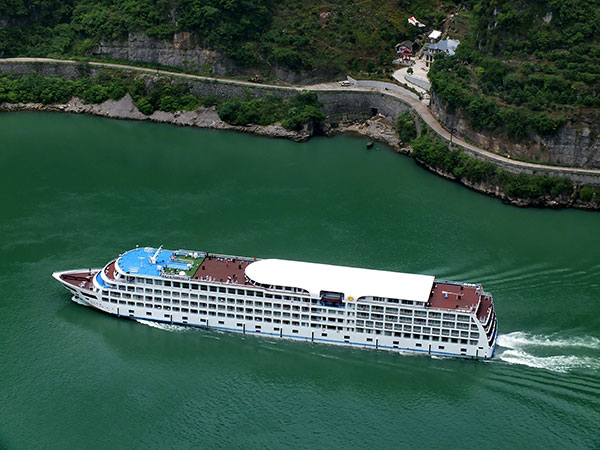Long-term cruise business unlikely upset by Eastern Star tragedy
 |
|
Cruising along the Yangtze River is popular among the country's summer vacationers. [Photo/China Daily] |
The recent capsizing of Eastern Star, with 456 people on board, will not affect cruise ship tourism in China in the long term, but may have an immediate fallout, an analyst says.
On June 1, the ship sank in the Yangtze River in Central China's Hubei province, in the face of a fierce storm, killing all but 14 people aboard. A week after the tragedy, Xinhua News Agency reported that the rescuers had retrieved the bodies of 434 victims.
According to Zhang Lingyun, the deputy dean of tourism college at Beijing Union University, the ship capsized owing "mainly to rare weather conditions".
"People won't stop taking airplanes because of reports of crashes," Zhang tells China Daily.
"But the public needs time to put the tragedy behind, so there might be a short-term fallout from it."
Ctrip, a major Chinese online travel agency, has received some requests from customers seeking to cancel their bookings on cruise ships after the incident.
More than 50 tourists canceled their planned cruises, says Huang He, general manager of Xiyanghong Travel Agency in Suzhou in eastern China's Jiangsu province.
His company expects more people to withdraw from such trips in the coming days.
The Nanjing branch of Shanghai Xiehe Travel Agency, which organized the river excursion of the capsized Eastern Star, canceled its next cruise, which was to start on Monday. The private company said another trip, set for June 17, might also be canceled.














